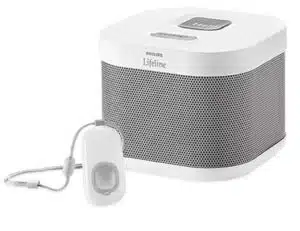Hip Pain in Seniors (Causes, Treatment & When Do You Need to See a Doctor)
Author: Lifeline Canada
Date: 7 October 2020
Nearly one in four people over the age of 60 will experience hip pain. 1 With that many people suffering from it, is hip pain “just a part of getting old?”
The pain can be debilitating. Hip pain will affect everything you do and rob you of your ability to do the everyday things you love. And it can keep you awake late at night, because you can’t get comfortable enough to sleep.
One of the most frustrating parts of hip pain is it can be tricky to diagnose exactly what’s causing the pain. And if you’re not successful with your first treatment, it can be easy to give up and just accept that, “I’ve got a bad hip now.”
But it doesn’t have to be that way!
Let’s start by looking at the most common causes of hip pain, and how to ease them. This should give you an idea of what you may be suffering from, so you can start the conversation with your doctor.
1. Arthritis Causing Hip Pain
The most common cause of chronic hip pain is arthritis, and the most common type of arthritis is osteoarthritis.2
This is more prevalent in women than it is in men. Everyday Health has reported that, “almost 27 million people in the United States have osteoarthritis, and that about 60 percent of them are women. Before age 55, more men tend to have osteoarthritis, but after age 55 the number of women with the condition far surpasses the number of men.”
Why is it a bigger problem for women? Women are built differently than men. The average woman’s hips are wider than her knees, as opposed to men. Also, the typical woman’s knee joints are not aligned as straight as men’s.
What Causes Arthritis in the Hip?
Simply put, this is the biggest ball-and-socket joint in the human body (between the top of the thigh bone and the socket within the pelvis). And it gets a lot of wear-and-tear. You’re putting stress on your hip joint with pretty much every single step you take, or even every time you roll over in bed. So the hip gets a lot of miles put on it before it starts to wear out.3
How Do I Treat Arthritis in the Hip?
There is no magic cure for hip arthritis. But there is a number of ways to reduce the pain, and take your lifestyle back.
They include:
Lifestyle Changes that May Relieve Hip Pain
- Exercise: Low impact strength training like aerobics or tai chi
- Weight loss: Aim to lose 5% within a 20-week period
Walking Aids
- Canes and crutches
Medications
- Acetaminophen (Tylenol)
- Nonsteroidal anti-inflammatory drugs or NSAIDs (aspirin, ibuprofen, naproxen sodium)
- Topical (rub on) NSAIDs
- Duloxetine (Cymbalta)
- Capsaicin
- Opioid and narcotic analgesics *
Surgical Solutions
Some physicians may suggest joint lavage and arthroscopic debridement. However, the medical community is divided on how effective either of these procedures may be.
The joint lavage comes from the French word for “clean,” and as you can imagine the procedure involves the cleaning and flushing of the joint with a sterile solution. Results have been mixed.
Whereas, arthroscopic debridement involves your surgeon removing loose tissue fragments from your hip joint. Again, results have been mixed.
Both procedures have been described as both a good short term solution to pain, as well as criticized as a mere placebo.
Related: Complete Guide To Caring For An Elderly Parent

2. Hip Pain From Hip Fractures and Falls
This is another very common one. Everybody knows someone who has fallen and broken/fractured their hip — even on seemingly small falls. Falls are the top cause of injury and injury-related deaths in people older than 65.
Why are hip injuries so common? Well, the hip’s center of gravity means that it’s most likely going to take the brunt of the force (most of your body weight) on impact.
Hip fractures are one of the most common hip injuries from falling. About 300,000 people suffer a hip fracture each year in the US. North of the border, about 27,000 older Canadians break their hip every single year. The total cost of hip injury treatment is absolutely massive at an estimated $1B per year.
Why is hip injury so dangerous? First of all, too many people are alone when they fall and break their hip. They’re unable to get up, or get to the nearest phone. To prevent this, your best bet is to very seriously consider medical alert technology, like Lifeline.
Second, the effects of hip injury can be life-threatening, either immediately or long term.
Recent studies found that:
- Those with broken hips are 2.78 times more likely to die in the year afterwards4
- After eight years, people with broken hips were at more than double the risk of dying, falling to 1.79 times after eight or more years4
Related: Fall Prevention Guide for Seniors & Caregivers
How to Ease Hip Pain From a Fall and Fracture
A hip fracture is very serious and will most often require surgical to repair or replace the hip. This could be followed physical therapy to regain strength and mobility.
The exact course of action will depend on a lot of factors such as your:
- Age
- Overall health
- Size
- Level of arthritis
Your surgical options include:
- Internal fixation: Using pins, screws, rods or plates to hold the bone in place, either inside or outside the socket joint
- Hemiarthroplasty: Replacing the femoral head with a prosthesis
Complete hip replacement: Replaces the socket in the hip and the femoral head with prostheses
3. Hip Pain From Tendinitis and Bursitis
This one can come from out of nowhere, so you may think it’s something else, like a fall.
This again comes from wear and tear in the hip joint, so its effects aren’t just limited to the elderly. Tendinitis and bursitis in the hip are often diagnosed in young and healthy athletes like football, soccer and tennis players.
Unlike arthritis, which is wear and tear on the joint, tendinitis and bursitis comes from wear and tear on the tendons connecting the muscles to the joint. It all just feels like pain in the hip to those affected, so it can be hard to tell which you’re suffering from.
How to Ease Tendinitis and Bursitis in the Hip
- Rest is the first answer. You need to give the strained tendons a break, and ice them for up to 15 minutes at a time, a few times a day.
- You can also treat the pain with oral anti-inflammatory medications such as *:
| BRAND NAME | GENERIC NAME |
| Advil, Motrin | ibuprofen |
| Aleve | naproxen sodium |
| Ascriptin, Bayer, Ecotrin | aspirin |
- If the symptoms worsen after ice and rest, see your physician. Or if the problem doesn’t improve in a week or two of rest and ice, see your physician.
- You may require physical therapy to reduce the pain and regain mobility.
- Surgery may also be required, followed by a few months of physical rehabilitation.
How can Lifeline help if I fall and hurt my hip?
As we outlined above, this is an extremely serious situation and acting fast can be crucial.
Make sure that your loved ones and medical help are never too far away to help you. Investing in a medical alert solution may also help you feel more confident.

Lifeline is an easy-to-use personal response service that lets you summon help any time of the day or night – even if you can’t speak. All you have to do is press your Personal Help Button on a wristband or pendant, and a trained Personal Response Associate will ensure you get help fast.
Help can be just a button push away! Compare Lifeline’s medical alert solutions to find what best fits your circumstances.
REFERNCES
[1] Louise B. Murphy, Charles G. Helmick, Todd A. Schwartz, Jordan B. Renner, Gail Tudor, Gary G. Koch, Anca D. Dragomir, William D. Kalsbeek, Gheorghe Luta, Joanne M. Jordan. (2010, August 14). One in four people may develop symptomatic hip osteoarthritis in his or her lifetime. Retrieved from https://www.ncbi.nlm.nih.gov/pmc/articles/PMC2998063/
[2] Beth W., Orenstein. (2014, October 15). 5 Common Causes of Hip Pain in Women. Retrieved from http://www.everydayhealth.com/hip-pain/five-common-causes-of-hip-pain-in-women.aspx
[3] Zelman, David. MD. (2016, May 10). Hip Osteoarthritis (Degenerative Arthritis of the Hip). Retrieved from http://www.webmd.com/osteoarthritis/hip-osteoarthritis-degenerative-arthritis-hip
[4] Allen, Victoria. (2017, January 21). Elderly people who break their hip are three times more likely to die in the year following their accident. Retrieved from http://www.dailymail.co.uk/health/article-4142216/Elderly-people-break-hip-likely-die.html
DISCLAIMERS
[*] Always consult with your physician/pharmacist regarding which medications to take and whether they may interact with a prescription you are already taking.
What You Should Do Now:
Here are 5 ways we can help you or your loved one live safer and more independently at home as long as possible:
- Get our latest tips, tools and resources straight to your inbox. Sign up for our monthly newsletter.
- Not sure if the time is right for a medical alert service? Take this quick assessment to find out.
- If you would like to learn how to live a healthier and safer lifestyle, go to our blog or visit our resources section, where you can read and download guides.
- Wondering which medical alert system company is the best for your needs? We’ve put together a guide comparing the best medical alert systems for you.

